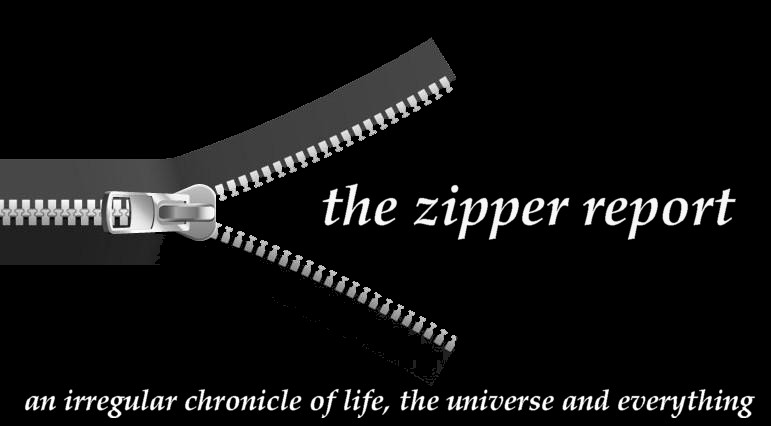An American band played their first-ever Canadian gig at a club in Halifax, but they began to feel uneasy once they noticed that patrons were flashing horse-choking wads of cash about. And being from Chicago, they knew what that meant!
They were all set to complain to their manager about the shady sort of place he'd picked for them to play, when somebody explained the bills weren't "real money" but cleverly-crafted commercial coupons made to look like currency which were redeemable for merchandise only - and then, only at Canadian Tire stores.
The club owner, it was explained, needed to make some renovations. And since most of the supplies he'd need for the job would be bought at the local Canadian Tire, the coupons were as good as cash to him.
And his scheme was wildly popular, too, since there isn't a Canadian alive who doesn't have at least a few bucks' worth of C.T. scrip lying crumpled in a drawer somewhere.
And his scheme was wildly popular, too, since there isn't a Canadian alive who doesn't have at least a few bucks' worth of C.T. scrip lying crumpled in a drawer somewhere.
In fact, I've always contended that if the world economy went in the crapper tomorrow (and Canada's legal tender with it), we could always fall back on our coupons.
And they don't carry the stigma of food stamps.
You needn't be ashamed to have them in your wallet; because they're ever-so-elegant! They're printed on fine quality paper with a Scot on one side (to remind ye to be frugal) and a fine-lookin' lass on t'other (to remind ye there's more to life than money).
And they come in almost as many denominations and lovely colours as the government ones.
You needn't be ashamed to have them in your wallet; because they're ever-so-elegant! They're printed on fine quality paper with a Scot on one side (to remind ye to be frugal) and a fine-lookin' lass on t'other (to remind ye there's more to life than money).
And they come in almost as many denominations and lovely colours as the government ones.
I did a piece for CBC some years ago suggesting the answer to Canada's tired currency was Canadian Tire currency. And I urged an immediate switch-over. I pointed out that people in Third World countries who'd had the stuff passed off on them by unscrupulous tourists would finally be able to afford that trip to Toronto they've always dreamed of taking.
But, for some reason, nobody ever picked up that ball and ran with it.
I suppose there are those who would argue that Canadian Tire currency relies solely on the continued success of one, homegrown, big-box retailer, whereas the full force of the Canadian Government (Le Gouvernement De Canada, no less) stands firmly behind its bucks. But given the persistent pace of privatization and general disassembly of government infrastructure, I'm beginning to wonder which will outlast which.
In the meanwhile, I can only say, "Visitors beware!"
When someone in this country tries to pass you funny-looking money, the only important question to ask is: "How much will this buy me at Canadian Tire?"
There! Now, I can rest, knowing I've done my bit in the ever-challenging and never-ending tourist education campaign.
And yet, I still can't shake the feeling that I owe W. C. Fields an apology?
And yet, I still can't shake the feeling that I owe W. C. Fields an apology?



